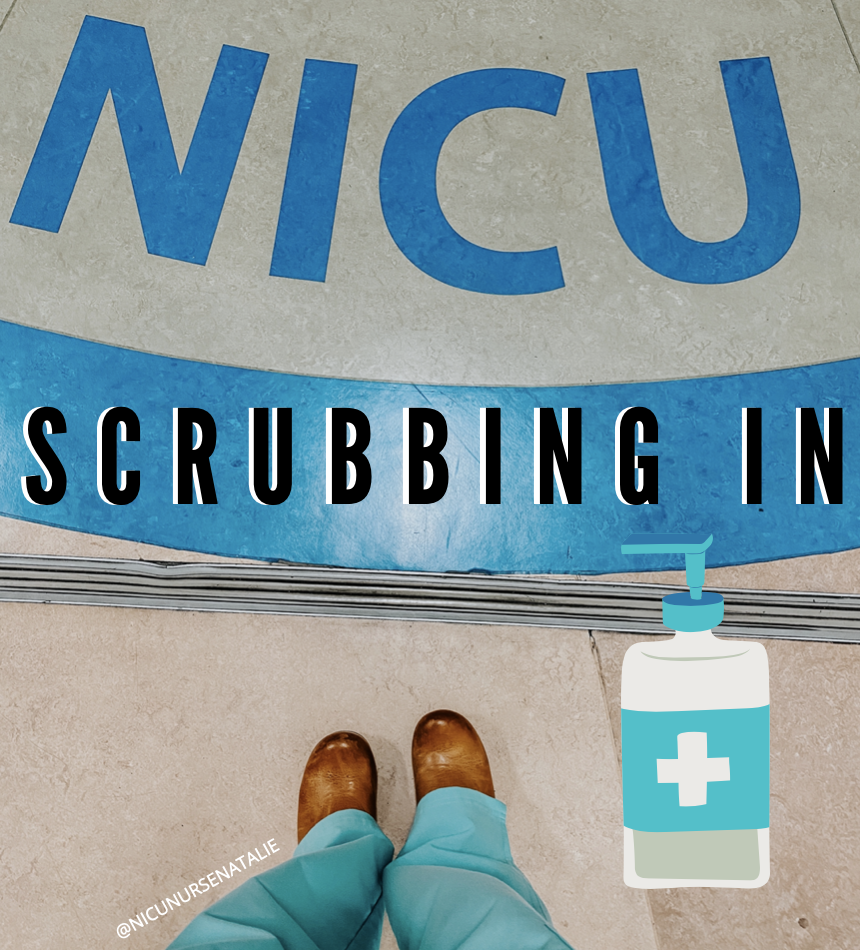Handwashing is essential to protect your baby from getting sick. Keeping your hands clean (hand hygiene) is the most important way to stop the spread of germs. Hand hygiene includes washing your hands with soap and water and using hand sanitizer gel intermittently. All parents and visitors must wash their hands when they enter the NICU. One of the jobs of a NICU nurse is to instruct, educate, and remind staff and families to clean their hands before they touch their baby.
Each time parents and staff enter the NICU, they follow the same routine:
Remove all jewelry such as rings, watches, bracelets, etc.
Push your sleeves above your elbows. Sleeves must remain above the elbow for the duration of your visit.
Wash your arms and hands, from elbow to fingertips, with soap and water for ONE FULL MINUTE.
Use a timer or watch the clock in order to properly time yourself.
Remember to scrub under your fingernails and everywhere that’s visibly soiled
If you leave the hospital or unit and pull down your sleeves, you will need to repeat the scrubbing in process again.
All parents, siblings, and guests who enter the NICU must follow hand hygiene guidelines even if they don’t plan on touching the infant during their visit.
It’s a good idea to wipe down surfaces that you plan on touching in order to reduce the spread of germs (i.e. cell phones, cameras, water bottles, etc.)
Use hand-sanitizer:
Before and after touching your baby, including after changing your baby’s diaper. HOWEVER, if your hands get visibly soiled with pee or poop, clean them with soap and water.
After touching any electronic devices or personal items
If you step out of your baby’s room for any reason.
Other ways that you can protect your baby from infection:
Do not visit your baby if you are sick. Also, ask friends and family not to visit the NICU either if they are sick. ESPECIALLY SIBLINGS! Leave them at home!
If you simply cannot take off your jewelry for any reason whatsoever (religion, sizing issue), don gloves over your hands to protect your baby from potential pathogens.
During sterile procedures in your baby’s room, you may be asked to wear a mask or even step outside momentarily to prevent the possible spread of infection.

